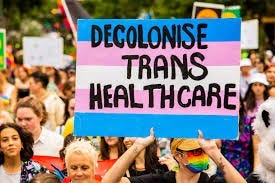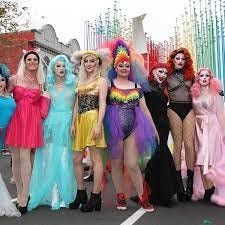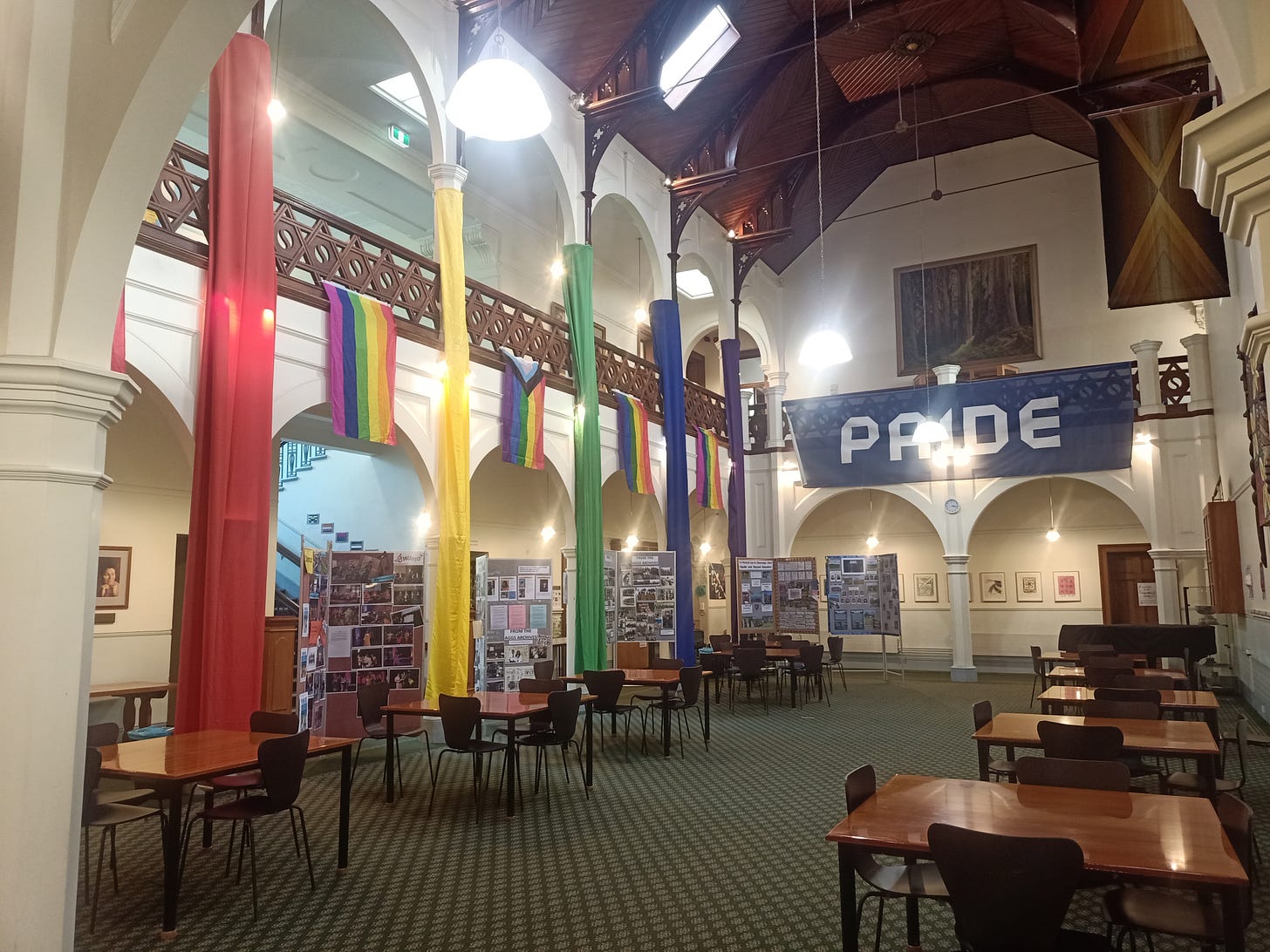Questions of Pride
Complicity in a scandal
June is fast approaching and with it the fifth annual Schools’ Pride week from 17-21 June, promoted by InsideOUT. The lobby group claims that 300 NZ schools participated in this event in 2023, including over 60% of secondary schools.
Now is a good time to get in touch with your school to find out if it plans to participate in this inappropriate week and, if so, to ask the principal to reconsider.
InsideOUT promotes Schools’ Pride Week as a “campaign celebrating rainbow staff, students and whanau… combatting rainbow-focused school bullying and discrimination.” These are nice-sounding words but they do not stand up to scrutiny.
Pride has become inextricably linked with sex denialism – the idea that sex is unimportant and that policies and laws should be based instead on individual, internal feelings of femininity or masculinity. RGE believes it is not the role of teachers to push their personal political views onto students or of schools to promote this highly politicised issue and teach unproven ideas as facts.
In our June 2023 substack Pride is Propaganda, RGE raised our objections to suggested Pride week school activities that were age-inappropriate, reinforced sexist stereotypes, repeated scientific untruths, or even increased the opportunities for students who don’t comply with the ideology to be bullied.
Usually, schools that participate in Pride week do so in the mistaken belief that it celebrates diversity and promotes acceptance and inclusion. If your local school is one that has fallen for this hype, here are some questions to ask the principal or BOT:
Who is behind InsideOUT?
Have you investigated the credentials of InsideOUT employees to check that they are qualified to advise on sexuality education in schools? Answer: more than 75% have no tertiary qualifications at all, and none has health education qualifications.
InsideOut’s widespread influence is not due to a groundswell of grass roots support and private donations. The Ministry of Education provided the charity with $100,000 in 2020 and its overall income from corporate donations in 2021-22 was $1.84 million. No other voice in the debate about sex and gender identity has a fraction of this kind of money to spend. The organisation has been showered with money for at least five years, so that a large number of NZ schools have now been influenced by its doctrine.
Do you agree with InsideOut’s beliefs?
Have you thought critically about the core beliefs of InsideOUT?
That sex is assigned at birth, rather than observed and recorded.
That there are three sexes (male, female, intersex) and a multitude of ‘genders’ all of which can change on a whim and must be immediately affirmed and respected by others.
That lesbians and gays are attracted to people of the same gender, rather than the same sex.
That students should be permitted to play on a sports team and use a toilet that “aligns with their gender”. (This means that boys can self-select into girls’ teams, toilets, and changing rooms.)
That if a student wishes to be known by wrong-sex pronouns, everyone else must comply, or face censure.
That parents are not to be trusted to care for their gender-distressed child and schools should routinely keep secrets from them.
Where is the LGB?
Are you aware that InsideOUT, along with many other rainbow organisations, advocate mostly for transgender beliefs and barely mention gays and lesbians in their resources?
For example, in Making Schools Safer, InsideOut’s ‘rainbow’ anti-bullying guidelines for schools, the only time the words ‘lesbian’ and ‘gay’ are used is in the glossary. On the other hand, throughout the resource, the word ‘trans’ is mentioned 267 times and transgender 24 times.
(Photos from Auckland Pride 2024, 2018)
The kink link
Are you aware that Pride events now routinely include ‘kinky’ sexual behaviour in public, such as half-naked men in bondage gear?
(Photo from Auckland Pride 2017)
Last year’s Schools’ Pride Week included a panel discussion on how to be a drag queen, as described in our June 2023 substack Drag for teens anyone?
Is this the acceptance and inclusion you want to model to our children?
The forced line-up of LGBTQIA+
The ‘rainbow community’ only exists as a slogan.
LGB (Lesbian, Gay, Bisexual) are sexual preferences.
TQ (Trans, Queer) are identities that are now very often claimed by heterosexuals who are seeking attention or gratification.
I (Intersex) is a medical condition affecting only 1 in 5000 people.*
A+ (Asexual and anything else) is unconnected with any of the above.
These are all distinct groups with different needs and forcing them into a letter salad does not create a ‘community’. [*Intersex is now more correctly referred to as DSD - Differences in Sexual Development - and covers a wide range of rare medical conditions.]
Do you think sexualities, identities, rare medical conditions, or relationship choices are age-appropriate topics for primary schools?
The school may only be planning to colour in some rainbow flags or make rainbow cupcakes, but the rainbow has become indistinguishable from all things sexual and young children should not be exposed to these ideas at school. At secondary school, Pride week and other ‘rainbow’ messages should be discussed using critical thinking skills, in classes led by qualified Health education teachers.
Diversity or stereotypes?
Does ‘Pride’ truly demonstrate diversity, or does it teach children that if they don’t conform to sexist stereotypes, they need to alter their bodies to ‘match’ their personalities?
Sex is not a matter of choice. It is not determined by our preferences or interests – to suggest so is a return to the sexist stereotypes of old. Telling gender non-conforming children, who may be future gays and lesbians, that they must really be the opposite sex (a core message of modern ‘Pride’) is nothing less than a new version of conversion therapy.
Puberty is not optional
Are you teaching children that puberty is a disorder that can be avoided by medication, rather than the natural and necessary progression it is between childhood and adulthood?
A new study by the Mayo Clinic in the US has found mild to severe atrophy in the testes of boys on puberty blockers, leading the authors to express doubt in the claims that these drugs are ‘safe and reversible’.
Last month in England, the National Health Service (NHS) announced it would no longer be routinely prescribing puberty blockers to minors after a review found there was not enough evidence they are safe or effective. England has joined The Netherlands, Denmark, Norway, Sweden, Finland, and 23 US States in severely restricting these drugs.
Yet the MOE’s RSE Guide for Years 1-8 (p28) recommends that students consider variations in puberty, including the role of hormone blockers.
Pride events that teach children it is possible, easy, and even ‘joyful’ to change their sex are medically and ethically reprehensible.
Why is Pride so special?
If the school remains neutral about other religious or political campaigns, why does it make an exception for Pride?
What started as a desire to teach children to be accepting of diversity and inclusive of others’ differences has morphed into an authoritarian quasi-religion which allows no opposition. Students are encouraged to make unreasonable demands of other students and teachers and no questioning or critical evaluation of the doctrine is permitted.
Some of the things being demanded by the new ‘Pride’ religion are:
That the belief that humans can change sex is an article of faith, not up for debate, and is to be taught as fact at all levels of the curriculum and in all subjects.
That students can compel others to use their chosen pronouns and, if these change from day to day, everyone else must keep up.
That symbols must be displayed everywhere to signify adherence to the belief – flags, lanyards, and rainbows in every classroom activity.
That celebratory days and events are held regularly, ensuring reinforcement of the beliefs.
That anyone - teacher or student - who does not agree with the belief that people can change their physical sex to match internal feelings of femininity or masculinity is to be shunned as unkind, ‘transphobic’, or bigoted.
If you are in any doubt about whether ‘Pride’ is a new religion that has taken hold in schools, consider the below photo taken in a large Auckland secondary school during last year’s Schools’ Pride week. At what other times would the school library be so intensely decorated with devotional symbols?
Acceptance of diversity and inclusion could easily be celebrated in other ways without promoting transgender beliefs, which is largely what ‘Pride’ now represents.
Has the community been consulted?
The flags, pronoun badges, and other symbols of ‘Pride’ week present powerful messages to young children about sexuality and the meaning of ‘sex’. They teach the confusing idea that sex can be changed on a whim and that a person’s sexuality, rather than their personality, is what makes them special. Clearly, these topics belong in the Health curriculum and, to meet the requirements of Section 91 of the Education and Training Act 2020, consultation must take place.
Parents, caregivers, and whānau need sufficient relevant information from the school to enable them to make an informed decision about their children’s participation in RSE. They should also be informed about the rules regarding withdrawal of ākonga from RSE and about strategies for managing any difference of views or values between home and school. Parents, caregivers, and whānau should have the opportunity to become involved in the consultation process.
Read more about the law here: Consultation, use it or lose it.
What arrangements have been made to provide other educational activities in place of any ‘Pride’ activities that parents have withdrawn their children from?
Complicity in a scandal
If the school continues with ‘Pride’ week, despite all the concerns raised above, it will be complicit in what is shaping up to be the biggest medical scandal in history - the deliberate enticement of minors to radically alter their bodies, having been duped by an unscentific ideology taught to them at school. The law suits have already started overseas.









What I can't get my head round is ,legally children can't have sex till they are 16. So the question musted be asked ,why are we educating 5+ how to have sex. Are they using this tactic to eventually lower the consent age .What the hell is wrong with people
Very informative. Surely they will all listen to these clear messages. I hope so.